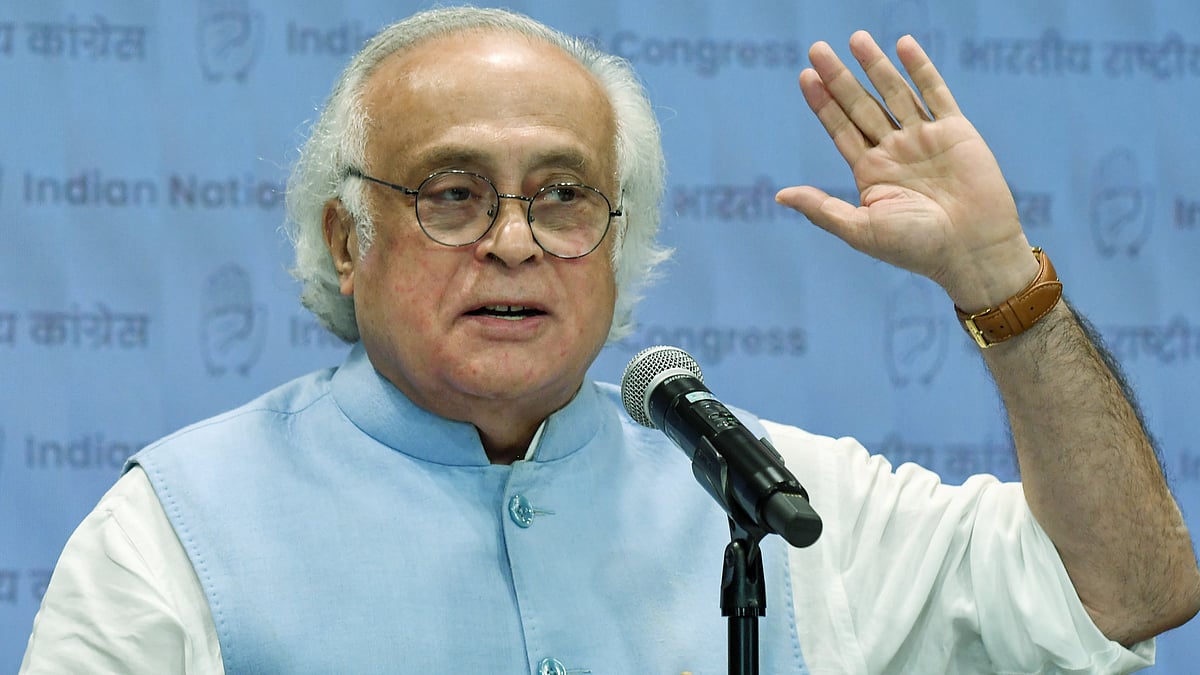POLITICS
Congress counters Modi, says Tagore guided 1937 ‘Vande Mataram’ move
It is shameful for the prime minister to accuse Nobel laureate Rabindranath Tagore of harbouring a divisive ideology, says Jairam Ramesh

The Congress on Friday, 7 November, responded with sharp indignation and quiet dismay after Prime Minister Narendra Modi accused it of “dropping stanzas” from Vande Mataram in 1937, a move he claimed “sowed the seeds of partition”.
The party dismissed the charge as both historically false and deeply disrespectful to Rabindranath Tagore, who had himself urged that only the first two stanzas of Bankimchandra Chattopadhyay’s timeless hymn be retained — a decision rooted not in division, but in sensitivity and inclusion.
Addressing a commemorative event marking 150 years of Vande Mataram at the Indira Gandhi Indoor Stadium, the prime minister had lamented the “divisive mindset” that, he claimed, led to the omission of key stanzas. He released a commemorative stamp and coin to mark the occasion.
But within hours, the Congress hit back, accusing Modi of “distorting history” and “demeaning the Gurudev.”
Published: undefined
“Tagore himself, with his deep spiritual association with Vande Mataram, suggested that only the first two stanzas be retained,” said party general secretary Jairam Ramesh, invoking passages from historian Sabyasachi Bhattacharya’s definitive biography of the song. “It is shameful for the prime minister to accuse the Nobel laureate of harbouring a divisive ideology,” he wrote on X, demanding an unconditional apology.
Citing Tagore’s letter to Jawaharlal Nehru dated 26 October 1937 — three days before the Congress Working Committee’s resolution — Ramesh underscored that the poet’s counsel had shaped the party’s decision in both tone and spirit.
“The Gurudev’s letter profoundly influenced the resolution in its entirety,” he said, sharing excerpts that revealed Tagore’s sensitivity to India’s plural soul.
In that letter, Tagore wrote that while the first two stanzas of Vande Mataram evoked tenderness, beauty, and devotion to the motherland, the later ones — drawn from Bankim’s novel Anandamath — carried associations that “might wound Muslim susceptibilities.” The poet, steadfast in his monotheistic faith and universal humanism, urged that the song’s spiritual essence be preserved without alienating any community.
“To me,” Tagore had written, “the spirit of tenderness and devotion expressed in its first portion made a special appeal... It has acquired a separate individuality and an inspiring significance of its own, in which I see nothing to offend any sect or community.”
The Congress reminded that on 24 January 1950, the Constituent Assembly officially adopted Vande Mataram as the national song — enshrining the very version that Tagore had blessed more than a decade earlier.
In a follow-up post, Ramesh also drew from Bankimchandra’s own writings, quoting from Samya — a series of essays penned between 1872 and 1876 — where the author railed against the caste system and the “terrible inequalities” it bred. “The caste system became a constraint to acquiring knowledge,” Bankim had lamented, decades before his song became a symbol of India’s awakening.
“Tagore first sang Vande Mataram at the 1896 Congress session in Calcutta,” Ramesh reminded. “He was the one who gave it a place of reverence in our public life — a place rooted in harmony, not hostility.”
As political tempers flare over the song that once united a nation, the Congress insists the truth remains clear: Vande Mataram was never meant to divide — only to awaken love, reverence, and the timeless call of a motherland that embraces all her children.
With PTI inputs
Published: undefined
Follow us on: Facebook, Twitter, Google News, Instagram
Join our official telegram channel (@nationalherald) and stay updated with the latest headlines
Published: undefined